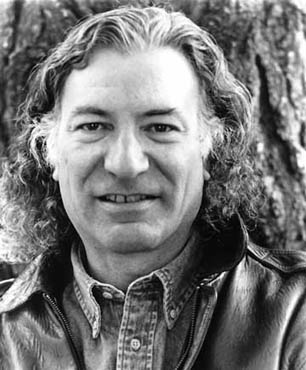


Obituary on New Music Box written by Rand Steiger
Stephen L. Mosko (1947-2005):
Music, Mind, and Personality
by Arthur Jarvinen
"My music, my words, my thoughts are obviously influenced by many other
people, cultures, and times. I neither care to avoid nor to imitate these
influences, since they are the make-up of my mind." - Stephen L. Mosko -
from program notes for Indigenous Music II
To hear a composition by Stephen Mosko is to take a guided tour of one of
contemporary music's most intriguing and agile minds. Composers often say
they "write what they hear". Mosko writes what he thinks, so that he (and
we) may hear it.
With post-Webern European art music as a point of departure, Mosko's musical
journey has taken him around the world by a circuitous route. He listens
voraciously, with an open ear and mind, absorbing the influence of Sufi
ceremonial music, Chinese opera, Rumanian gypsy tunes, and Icelandic epic
song (he is one of the world's only authorities on the latter). But he is
not a mere borrower, simply mimicking superficial characteristics of the
music of others in an attempt to sound exotic. Rather, the subtler aspects
of his listening experiences become conceptual models, i.e. ways of thinking
about his own music. And not only musical ideas imbed his works. His readings
in contemporary physics, astrology, and ancient literature have all played
vital roles in shaping Mosko's music.
In an age of high-technology, when almost every other composer has at least
occasionally turned to electronics, if not embracing it wholeheartedly,
Mosko continues to compose exclusively for unamplified acoustic instruments
and voice. He delights in the sounds of wood, metal, gut, and skin, and
in the ability of humans to keep coaxing fresh sounds from them. His works
often push players to the edge of their abilities and beyond, but never
out of carelessness or ignorance. His predilection for seldom-used string
harmonics, for example, is firmly grounded in the acoustical facts of these
instruments.
When speaking about his own music and methods Mosko often refers to "games".
Not the usual games we all know, but self-devised rules of procedure and
methods of personal amusement. Some of these are simply structural props;
others surface in more blatant ways. Lady R., the dramatic soprano of Night
of the Long Knives, delivers her lines in a hilarious patois which the composer
devised by trying to come as close to French as he could without actually
studying the language. A more serious expression of Mosko's interest in
language is the text sung by the cellist in her cadenza from Indigenous
Music II -
"Chord, as mass, must merge with pulse, Making quantum leaps convulse,
And the energy repulse Any chance of cheap song."
- which not only serves a musical end but provides an eloquent program note
for the work.
Structurally, Mosko's compositions are like complex tapestries; variations
of variations interwoven to form intricate webs of line and color. Cascading,
chromatic piano arpeggios, fragile harmonics and whistle tones, jarring
bass drum explosions, bending gong notes, and odd, fleeting fragments of
melody merge, collapse, re- emerge, and disappear again in an ever-shifting
kaleidoscope of sound. Complex yet transparent, similar self- contained
gestures like miniature compositions are laid out in a line; stepping stones
in a path that ultimately leads nowhere. This moment-form is an outgrowth
of Mosko's enduring fascination with music's ability to alter conciousness,
especially our temporal perceptions. Ideally, for him, the listener will
not be able to say with certainty whether a piece just heard was five minutes
or five hours long.
"[Morton Feldman] encouraged me to let my music be whatever I wanted, without
concern for stylistic or social 'correctness'. He said the best music could
not be imitated because it was pure personality." S.L.M.
Stephen Mosko's music is just that.
Copyright © 1995 Arthur Jarvinen
Home :: Biography :: Complete Works :: Discography :: Icelandic Music Research :: Lectures :: Contact